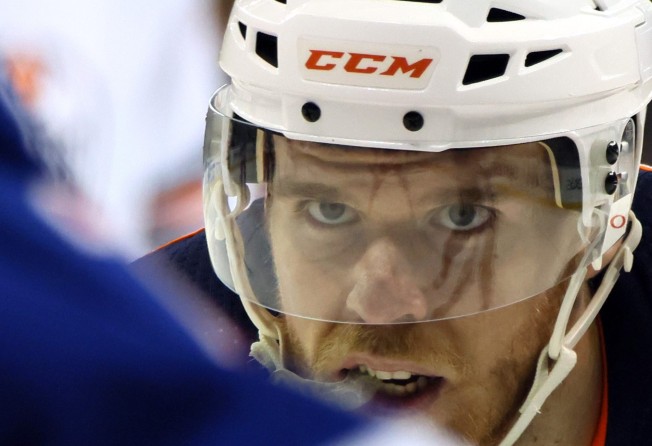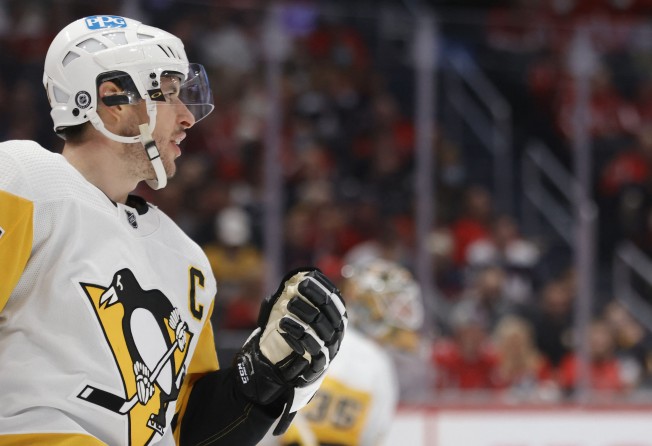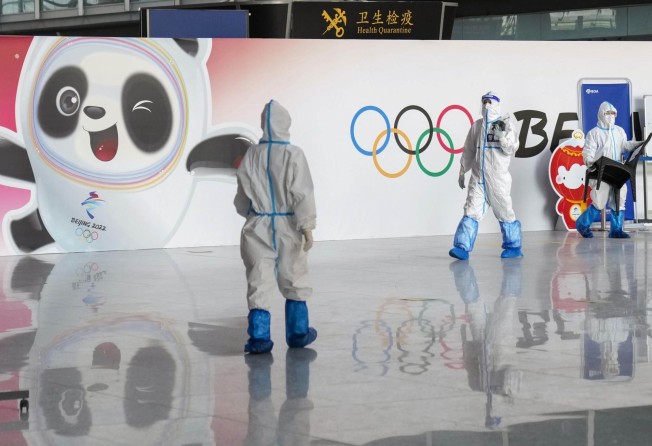
Beijing 2022: missing Winter Olympics in China may signal the end of NHL players at the Games for good
- The International Olympic Committee’s decision in 2016 not to pay for the insurance and travel costs of NHL players brought about a massive shift
- NHL brass, led by Gary Bettman, have now created a landscape where heading to the Olympics is just too much of a headache

Eight years ago on February 23 at the Bolshoy Ice Dome in Sochi, Russia, Canada rolled over Sweden 3-0 to win the ice hockey gold medal game at the 2014 Winter Olympics. Generational superstar and Canadian captain Sidney Crosby scored his first goal of the tournament in what was a brilliant showcase of NHL talent on an international level.
The Games were a massive success for the International Olympic Committee, in part, because more than 200 professional ice hockey players were willing, and able, to leave their employers (the NHL) midseason and head overseas for a month as unpaid contract freelancers.
Ratings were great despite the time difference between Russia and the North American market, as fans were more than inclined to wake up early or stay up late to catch a tournament they could only see once every four years.
To think this may have been the last time we see such a showcase of hockey talent was once a laughable prospect, but now the questions have started: could this be the last time we see NHL players in the Olympics?
Sochi built off the immense success of 2010 in Vancouver where Crosby scored a golden goal in front of his compatriots, creating an iconic moment for the sport. Things were looking up and that tournament alone catapulted NHLers into Russia amid a very sketchy political climate with little resistance from the league or its players.

But then in 2016 the IOC upset the balance, creating a domino effect that may have spelled the end of NHLers at the Olympics for what could be a very long time.
They announced they would not foot the insurance bill and travel cost for NHL players to head to the 2018 Winter Olympics in Pyeongchang. This was something they’d done since 1998 when NHL players first went to Nagano, Japan. For reference, those Games were a huge success largely because the sporting world spent months salivating over the prospect of pros playing in such a worldly atmosphere. A rising tide lifted all boats and Japan was the benefactor of the additional press in the lead up.
The Czech Republic beat Russia 1-0 backed by a superhuman performance by goaltender Dominick Hasek, and the entire country seemingly took to the streets of Prague and celebrated for days. Ice hockey had arrived at the Olympics with a bang and selling fans, the league and the players was as easy as easy could get.
So why on earth the IOC decided to put its foot down in 2016 remains a mystery, but that misstep may end up costing them dearly in the long run. NHL management had never been on board with its players going to the Olympics, even trying to create an alternative World Cup, which had a mixed reaction. But during that era there was no way they would not get hammered if they came out publicly against the Games.
Missing out of Pyeongchang for logistical reasons meant the NHL, led by a shrewd commissioner in Gary Bettman, seized on the opportunity to leverage the siutation. Shutting down the season for a month in February was like nails on a chalkboard for team owners, who also had to deal with their superstars potentially getting injured right before their teams made a push for the play-offs.
The revelation this week that Bettman had been lobbying – with little success – for years to get the IOC to move ice hockey to the Summer Olympics, tells us everything we need to know. The players have always wanted to go, but the Winter Olympics are a logistical nightmare, and this has long been an issue for the league and its billionaire owners in dealing with their millionaire employees.

The NBA has never had this issue bcause the Summer Olympics don’t fall within the season, but we have seen more hesitation and trepidation from that league and its players about heading to the Games since they first went back in 1992. The list of American superstars, such as LeBron James and Steph Curry, who didn’t go to Tokyo 2020 could have made up a team that would have been favoured to beat the actual American team who won gold.
NHL players heading to the 2022 Winter Olympics in Beijing always felt like a long shot, even after it was etched into the latest collective bargaining agreement between the NHL and the NHLPA and all the logistical challenges were sorted out. Covid-19 and another uncertain political climate were basically the straws that broke the camel’s back.
However, it must be noted if the 2022 Winter Olympics were in North America, NHL players going would have been a done deal even with a pandemic wreaking havoc.
Next up is Milano Cortina, 2026 in Italy and although that’s in the CBA for the players to go, one could easily surmise it will not happen now. Once again, if it was a North American city hosting the Games, this would be another story, but another overseas tournament in an inopportune time zone in a country that is not a traditional hockey market just means the NHL will do everything it can to dissuade its players from going.
Crosby got his chance to win gold for his country, but an entire generation of NHL superstars, such as fellow Canadian Connor McDavid, who is the league’s current generational talent, may never suit up for their countries now. Nobody really wins in this situation as the league and its owners are getting their way, but in doing so are upsetting the players that bring fans and revenue into their arenas.
Time will tell and a lot can happen between now and 2026, but by the looks of it, we may have seen the end of what was a spectacular showcase of hockey talent fans had become accustomed to every four years.